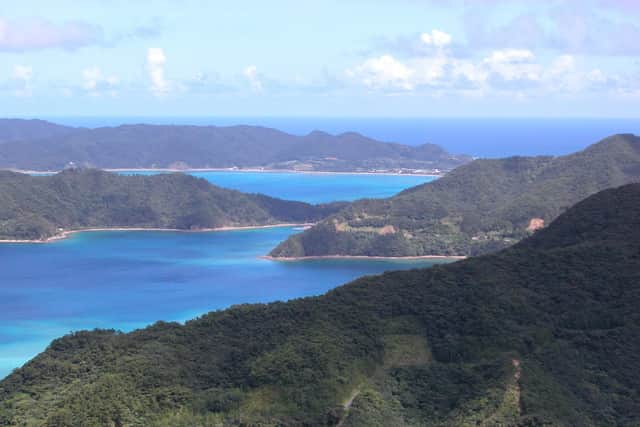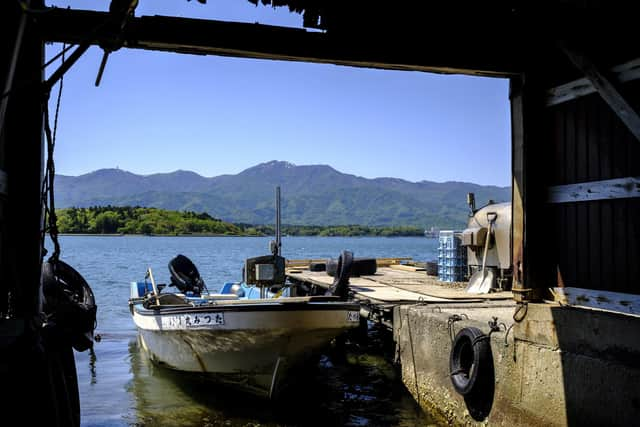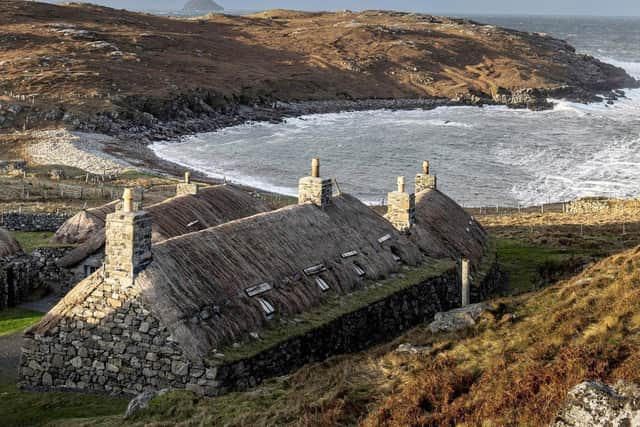Why Scotland is turning to Japan to help tackle island depopulation
Now Scotland is looking to Japan for inspiration as to how to tackle the historic issue of island depopulation as communities face ongoing challenges to survive and grow.
A team of researchers hired by the Scottish Government earlier this year has looked at how Japan, which has some of the fastest depopulation rates in the world due to low birth rate and rapidly ageing population, is working to attract people to island life.
Advertisement
Hide AdAdvertisement
Hide AdA report has suggested a number of ways Scotland can learn from Japan, which has been tackling depopulation with policy for 70 years, from monthly payments for new islanders who contribute to community activities to a scheme that encourages second home owners to share skills and build links with islanders.
Dr Jane Atterton, manager at the Rural Policy Centre at Scotland’s Rural College (SRUC), said: "At first glance the two countries are very different, but actually there is a lot that Scotland can learn from Japan."
While some island populations, such as Orkney and Shetland, are growing, it is forecast the Western Isles (Comhairle nan Eilean Siar) could see a 20 per cent decline in the working-age population and a similar loss of children over the next 20 years. Islands in Argyll and Bute are also struggling for people.
The report suggests Scotland could bring in the concept of ‘kankeijinkō’ – or relationship population – with repeat visitors to second homes or relatives who are supported by islanders to become invested in island life. This is done through building networks, sharing skills and laying groundwork for working or living on the island for at least some of the time.


In Japan, it was “striking” those visiting second homes on islands in Japan were “viewed positively” in terms of their potential to help revitalise communities, the report found.
Dr Atterton, whose team worked with colleagues in Japan on the study, said: “This is where context is really interesting and important. In Scotland there are negative connotations around second home ownership and real challenges around increasing house prices.
“But what we can learn from Japan is the way they work with and support potential in migration. They work with people to know what to expect.”


The report, which calls for Scottish islanders to be involved in designing depopulation policy, suggests a kankeijinkō’ scheme could be set up in an area of high holiday home concentration to engage visitors, particularly those interested in working from the island or setting up a business or teleworking base.
Advertisement
Hide AdAdvertisement
Hide AdA form of Japan’s Community Co-operative Support initiative, where those moving from an urban to rural population are paid the equivalent of £990 to £1,350 for a maximum of three years, has also been suggested. Members must take part in activities aimed at promoting or preserving local culture, history or nature amid a hope they will make their migration permanent.
Since 2009, numbers taking part have risen from 31 to 6,005 in 2021, with just under two-thirds of members staying on the island after the three-year period was complete.
Last month, the Scottish Government scrapped its proposed £50,000 island bond scheme, which would be given to 100 young families to move to the islands, amid opposition from islanders and concerns it could open up divisions without tackling the root causes of depopulation.


Japan has around 7,000 islands, with around 400 inhabited on a permanent or seasonal basis. In Scotland, around 93 of its 790 islands are lived upon.
Population of the most remote Japanese islands fell by almost 60 per cent between 1955 and 2010 given migration and an ageing population. On the majority of islands (70 per cent), less than 500 people live there.
Communities, traditionally built on fishing, agriculture and now tourism and the service industry in some cases, face challenges of keeping services and businesses going, increased social isolation, and an inability to maintain common resources and spaces.
While parts of the Japanese picture will be recognised by Scottish islanders, other important factors separate the experiences of two countries.
House prices on Japanese islands remain low and there is not the same perception of ‘idyllic’ island life in Japan, Dr Atterton said.
Advertisement
Hide AdAdvertisement
Hide AdShe said: "My sense is that in Japan, rural life is thought of as being really hard. My sense is also that it is changing. Maybe it is to do with Covid and more emphasis being placed on green and sustainable lifestyles. I think some of that is creeping in.
"Also, where we have a strong sense of who would make the right person to move to an island, for example a young family, in Japan there is more openness to bring a range of people in, to encourage baby boomers, those in their 60s and 70s. Japanese culture is much more positive about older people and inter generational living.”
Donald Macsween, a crofter at Ness, Lewis and councillor on Comhairle nan Eilean Siar, said it was time to “think outside the box” and work with islanders on improving demographics given the “same old, same old” was not working.
He said: “I'm very interested in the perception in Japan that island life is not idyllic and can be challenging – those of us who live in island communities know that this is the reality and that you have to work hard to reap the benefits of island life.
“My own feeling is that island communities first and foremost want help to retain their own youngsters, rather than the continuous migration towards towns and cities throughout the country. Access to land, housing and jobs is the first step, and you don’t have to worry about long-term integration.
“I welcome fresh ideas and ways of helping island communities, but please work with us rather than try and dictate from the outside – it doesn't work.”
Comments
Want to join the conversation? Please or to comment on this article.
